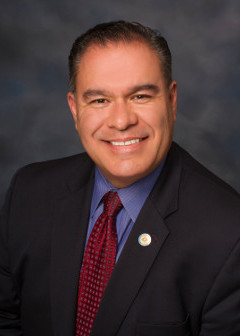SB 161 BACKGROUND CHECKS FOR DMA EMPLOYEES
Sponsored By: Sen Michael Padilla
Actions: [2] SJC/SFC-SJC [4] DP-SFC [6] DP - PASSED/S (30-0) [8] HLVMC/HJC-HLVMC [12] DP-HJC API.
Scheduled: Not Scheduled
Senate Bill 161 (SB 161) requires state and national criminal background checks for applicants, employees, and volunteers of the Department of Military Affairs who work with minors in programs such as the Youth Challenge Academy, Job Challenge Academy, and the Governor’s Summer Program. The bill outlines the process for conducting background checks, establishes restrictions on the use of criminal background information, and provides for the suspension or reassignment of personnel pending the resolution of criminal charges. SB 161 also grants the Adjutant General authority to use appropriations and other funding sources to support youth programs.Legislation Overview:
Senate Bill 161 (SB 161) proposes a new section in Chapter 20, Article 3 NMSA 1978 that mandates criminal background checks for individuals working with minors in Department of Military Affairs (DMA) programs. The bill defines an applicant as any person seeking employment or volunteer opportunities involving direct supervision or control of minors. Background checks are required for all such individuals and must be conducted at both the state and national levels. The bill requires applicants, employees, and volunteers to submit fingerprints to the Department of Public Safety, which will conduct state criminal background checks and forward the information to the Federal Bureau of Investigation for a national check. Individuals must pay the costs associated with their background checks. Pending completion of these checks, new hires and volunteers may be provisionally employed but must remain under direct supervision by a person who has already passed a background check. DMA is authorized to use the results of background checks to determine whether an individual is suitable to work with minors. Background information is restricted to hiring officials and cannot be shared outside the department, except with the individual undergoing the check. Convictions for sex crimes, offenses involving minors, and drug-related felonies may disqualify individuals from employment or volunteer positions. If an individual has been charged but not yet convicted of such a crime, the department may suspend their application process or reassign them to duties that do not involve contact with minors until the case is resolved. The bill also proposes an amendment to Section 20-3-2 NMSA 1978 to grant the Adjutant General authority to allocate appropriations and other funds for youth programs. This change ensures that adequate financial resources are available to maintain the operations of youth programs under the department’s jurisdiction. Implications SB 161 will impose additional costs on applicants, employees, and volunteers, as they are required to pay for their own background checks. The DMA may also incur administrative costs related to processing and reviewing background checks. The financial impact on the state budget is expected to be minimal, as the bill does not create new state-funded programs but instead reallocates existing resources for implementation. The ability of the Adjutant General to use appropriations for youth programs may enhance funding flexibility without requiring additional legislative appropriations.Current Law:
Under current law, the Department of Military Affairs does not have a statutory requirement to perform criminal background checks on employees or volunteers working with minors in its programs. While background checks may be conducted as part of general hiring practices, SB 161 formalizes the process, establishes clear guidelines, and mandates fingerprint-based checks at both the state and federal levels.
-
Bill Documents arrow_drop_down
-
Commitee Reports & Amendments arrow_drop_down
-
Floor Amendments arrow_drop_down
-
Floor Votes arrow_drop_down
